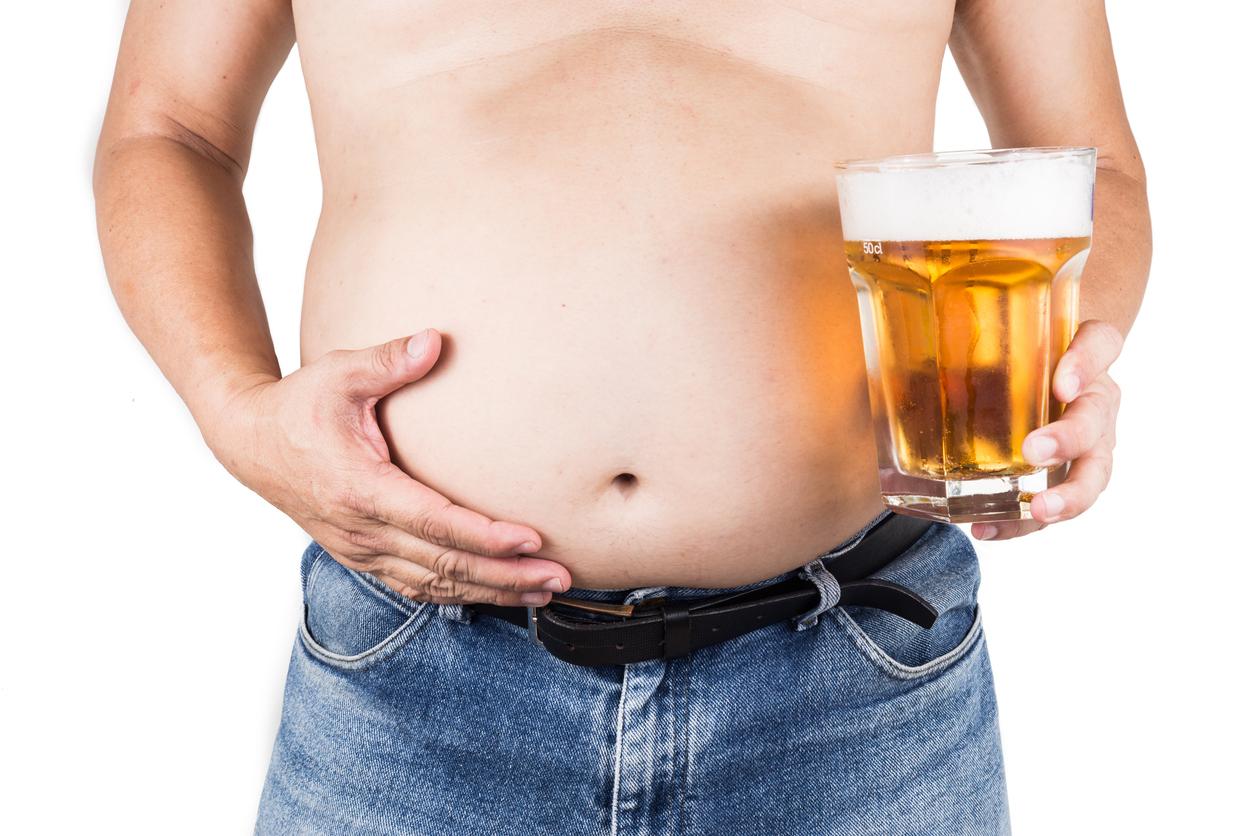The probability of having a beer belly would be related to sleep: those who sleep less than eight hours are more at risk.

- The “beer belly” corresponds to an excess of visceral fat.
- It corresponds to the fat that accumulates around the vital organs.
- People who sleep less than eight hours are more at risk of having it.
Our nights are getting shorter and shorter. According to theInserm, the French sleep around an hour and a half less than 50 years ago. However, getting enough sleep helps you stay healthy. According to a new study, published in the specialized journal sleep medicine, too short nights of sleep also have consequences on our physical appearance: they would increase the risk of having an accumulation of visceral fat in the belly. This, more commonly called “beer belly”, is located around vital organs, such as the liver or the intestines. Invisible to the naked eye, it increases the risk of cardiovascular disease and cancer. “As they are lodged around the viscera, the fats envelop the veins connecting the intestines to the liver, specifies theInstitute for the management of obesity. When visceral fat is in excess, it passes directly into the veins.”
Visceral fat: the shorter the sleep, the more it accumulates
To understand the link between sleep and visceral fat, the authors of this new study analyzed scientific data from more than 5,000 adults. They answered questionnaires about their sleep and underwent X-ray examinations so that the researchers could observe the distribution of their fat. The average sleep time of the participants was between 2 h and 12 h. The majority of participants slept between 7 and 8 hours per night.
Researchers have observed a negative correlation between sleep duration and visceral fat: the less we sleep, the more it accumulates. But there is a plateau effect from 8 hours, this means that sleeping more than 8 hours does not protect more against the risk of visceral fat. In addition, scientists note that chronic lack of sleep is an important risk factor for increased visceral fat.
Why lack of sleep increases visceral fat?
In their study, the researchers give some explanations for this phenomenon. According to them, lack of sleep contributes to the dysregulation of certain brain activities in areas related to the reward system and appetite. It also increases insulin resistance, which contributes to an increase in this type of fat. But it also contributes to hormonal imbalances, which can increase appetite.
Sleep: get enough sleep to limit the appearance of visceral fat
To limit the risks, it would therefore be necessary to sleep eight hours a night. “Our study contributes to recent evidence suggesting a strong link between sleep deprivation and weight gain, which could be clinically significant as visceral adiposity is associated with metabolic issues such as insulin resistance, diabetes type 2 and cardiovascular disease“, concludes Dr. Panagiotis Giannos, co-author of the study, in an article in the Daily Email. At the same time, a balanced diet, limited stress and regular sports activity can reduce visceral fat or prevent it from settling around our organs.

















